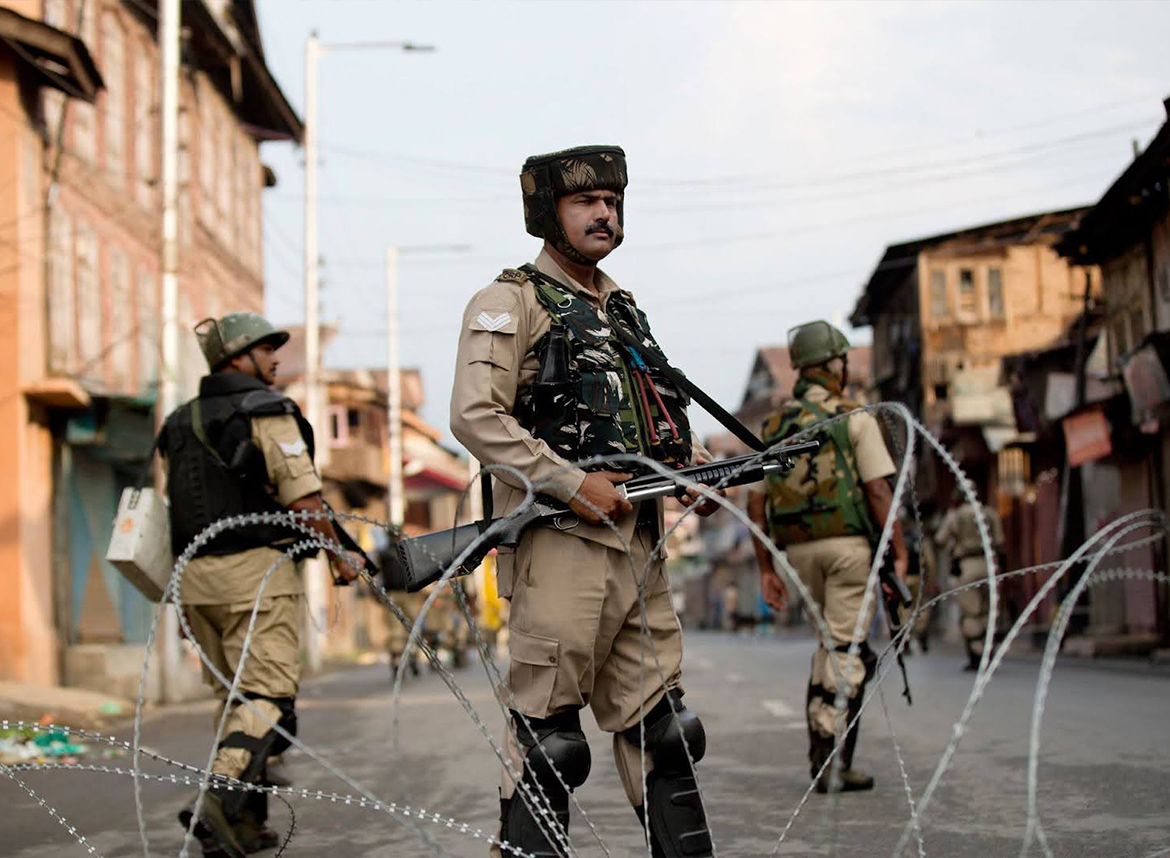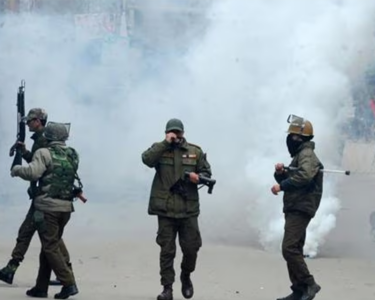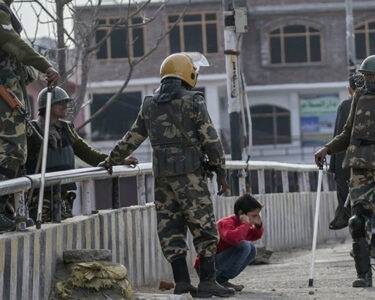The protracted conflict in Kashmir has witnessed diverse strategies employed by the involved parties, with lawfare emerging as a particularly prominent tool utilized by India. Lawfare, defined as the strategic manipulation of legal systems and principles to achieve political or military objectives, has become deeply ingrained in the Kashmir conflict, profoundly impacting human rights, political discourse, and the pursuit of justice within the region. This article presents a critical analysis of India’s use of lawfare in Kashmir.
The Kashmir conflict’s origins date back to the partition of British India in 1947. Have led to standing territorial disputes and unanswered self-determination issues in the region. It is still heavily militarized and also has faced repeated attacks of violence and political turmoil over the years. In times additional complexities have emerged due to administrative moves made by the Indian government; particularly significant was the scrapping of Article 370 followed by the division of the state into two union territories in 2019. The modifications made through procedures have consequences, for the self-governing status of the area and its population makeup and future political direction in the region of Kashmir have linked Kashmir more closely to Indias administrative framework highlighting concerns about the potential loss of Kashmir’s distinct identity and ability to make decisions independently.
In Kashmir legal strategies by India have taken on forms over time. One prominent law in place is the Public Safety Act (PSA) which allows for detaining individuals without a trial for prolonged periods and has faced criticism for its implementation. Various human rights groups have instances where people, such as political figures, to regular citizens have been held under the PSA without proper evidence or legal procedures. In a vein, to that thought is the Unlawful Activities (Prevention Amendment Act) known as the UAPA for its extensive rules have played a key role in suppressing opposition and curtailing the ability to freely express opinions. The implementation of the UAPA has grown in scope over time; consequently, limiting the opportunities for critical voices and independent journalism, within the region.
India lawfare strategy includes the Security Forces Act which gives authority to security forces in designated areas. This has sparked worries about freedom and the risk of human rights violations. The Act establishes a framework that protects security personnel from being accused for their actions during operations making it difficult to hold them accountable. The combined impact of these measures in Kashmir has significantly diminished rights and essential freedoms over time due to their selective application and lack of proper judicial supervision. Challenges to these laws in court often face hurdles within the system such as complex procedures and delays alongside limited legal support availability. Restrictions on freedom of speech and movement as assembly have restricted civil liberties in Kashmir and hindered the ability of Kashmiris to express their grievances or participate in peaceful demonstrations.
The media in Kashmir faces challenges as it operates under restrictions and government pressure which hinders its ability to report events accurately and independently. The Indian government employs measures to shape opinion and restrict enquiry of its policies both at home and abroad. In defense of its actions in Kashmir the Indian government often refers to security threats, terrorism efforts and the need to maintain law and order as reasons for its strict approach. Critics argue that these reasons are sometimes used to stifle opposition and tighten power rather than for genuine security concerns, in Kashmir region. International human rights organizations have repeatedly raised issues regarding the lack of legal procedures and constraints on freedom of speech in reports concerning India’s handling of Kashmir region matters; they also expressed worries about the excessive use of force by security personnel there. Despite these concerns being consistently brought up by these organizations over time. Stating their belief that Kashmir matters internal affairs not subject to international interference in India’s official position on the issue.
In the current era, these issues are quite complex, as of now in India. The government is pushing for progress through initiatives while some critics argue that there are still restrictions in place and dissent is being suppressed continuously. Legally speaking not much has changed with laws like PSA (Public Safety Act) UAPA (Unlawful Activities Prevention Act). Getting access to information continues to be a challenge due to internet shutdowns and media freedom limitations; civil society organizations find it hard to function independently in such an environment. The modification of demographics in the area following the repeal of Article 370 has sparked worries about shifting the region’s religious balance. The global community has shown a range of reactions to the conditions in Kashmir.
India utilization of lawfare in Kashmir poses a changing issue that has consequences for human rights, regional stability and the potential for peaceful conflict resolution By deliberately employing legal instruments Indian authorities have gained more authority over the area, dealt with opposition effectively and influenced the prevailing landing. It is important, for human rights groups and legal professionals to keep examining these strategies and supporting rights and basic freedoms while working towards a fair and lasting peace in Kashmir area The importance of conducting thorough research and detailed examination cannot be overstated in grasping the changing nature of legal tactics, in the Kashmir conflict situation and creating plans that encourage discussions justice outcomes that endure. The future of Kashmir depends on discovering a way to achieve peace and harmony that upholds the rights and hopes of all its inhabitants.




